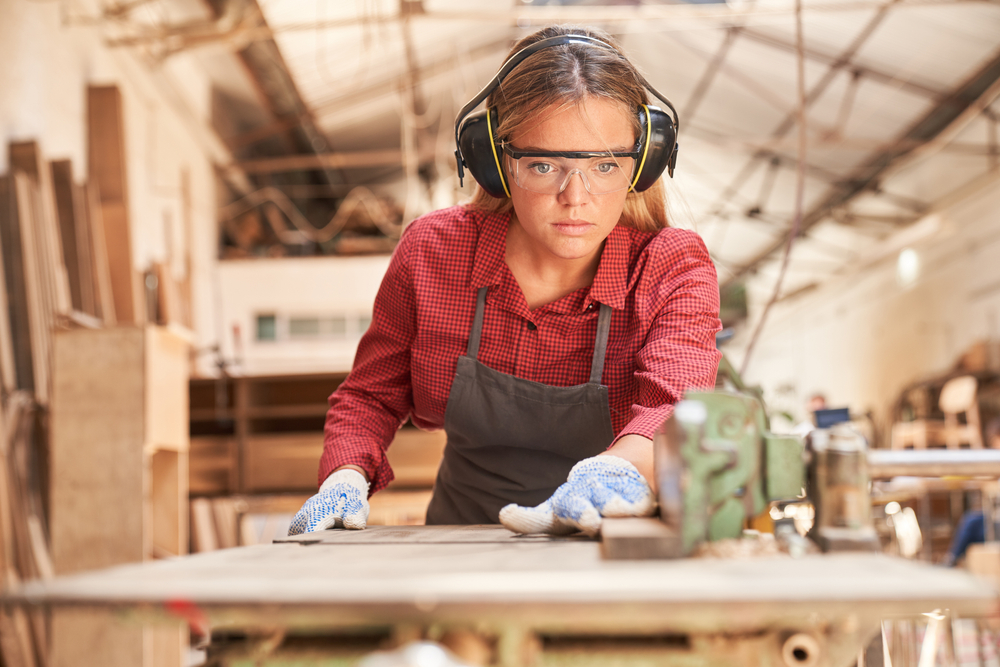
Hearing protection plays a critical role in protecting your ears against harmful noise levels, whether at work, concerts, or even during DIY projects at home. However, a number of factors can hinder the effectiveness of your hearing protection, leaving you exposed to possible risks. In order to understand and successfully maximize the advantages of your ear protection, it’s essential to understand these issues.
Common reasons why hearing protection fails
Unexpected difficulties will occur even when you follow best practices. You steer clear of overly loud situations as much as possible, use earplugs at concerts, and vigilantly use earmuffs at work. However, the efficiency of your hearing protection can be reduced by specific variables. Fortunately, by acknowledging these common pitfalls, you can make informed adjustments to ensure your hearing is always well-protected.
1. Choosing the wrong hearing protection for the situation
The effectiveness of hearing protection can be decreased by selecting the wrong type for the given situation.
Generally speaking, hearing protection falls into two main categories:
- Earmuffs: Larger devices that cover the whole ear, similar to headphones.
- Earplugs: Little, flexible inserts that fit snugly inside the ear canal.
There is an optimal type for each situation:
- In settings like a construction site where noise is periodic and you may need to regularly remove your hearing protection, earmuffs are the more effective choice.
- Settings with a continual noise threshold, including a factory floor or the cabin of an airliner, are the perfect times to use earplugs.
Earmuffs are easier to manage when there is a need to frequently put on and remove your hearing protection. Disposable earplugs, in contrast, can leave you vulnerable to hearing damage because they can be easily lost. The first step towards effectively safeguarding your hearing is to select the right type of hearing protection.
2. Individual anatomy impacts fit and effectiveness
Some devices will fit better than others based on the size and shape of the individual’s ears. Standard earplugs and earmuffs are usually designed with average dimensions in mind, but your ear anatomy could require a more personalized solution.
- Larger ear structures: Earmuffs might be uncomfortable if your ears are larger than average causing gaps in the seal.
- Smaller ear canals: The noise-blocking capability of standard-sized earplugs might not be effective if smaller ear canals impede the formation of a sufficient seal.
Ill-fitting hearing protection can result in frustration and a desire to abandon their use entirely, putting your hearing at risk. Think about buying custom-fitted earplugs or professionally fitted earmuffs if you spend a lot of time in loud settings. These personalized solutions provide maximum comfort and effectiveness, ensuring you stay protected in any situation.
3. Failing to maintain or replace ear protection
In order to stay effective, hearing protection devices need to be correctly maintained just like any other devices do. Wear and tear, incorrect cleaning, and neglecting replacement schedules can all jeopardize their ability to protect your ears.
The following are a few tips on how to care for hearing protection:
- Clean Properly: Debris and earwax can accumulate on your hearing protection over time. In order to safely and effectively clean your earplugs or earmuffs, consult the manufacturer-recommended cleaning instructions.
- Replace Cushions: Over time, earmuff cushions can lose their pliability. In order to maintain a proper seal, replace the cushions when necessary.
- Inspect for Damage: Regularly inspect the elastic band on earmuffs. A slack or stretched band can reduce their snug fit, lowering their noise-blocking capacity.
Disregarding these basic maintenance duties can leave your hearing protection less effective or even unusable. In order to ensure consistent and effective performance, and to extend their lifespan, it’s essential to keep these regular maintenance schedules.
The advantage of a hearing specialist
Schedule an appointment with us for an evaluation if you think that your hearing protection might not be working. We can check your present devices, suggest alternatives, and even provide custom solutions tailored to your specific requirements.
Keeping your hearing safe is a commitment that lasts a lifetime and it’s crucial that you do it with the best tools. By addressing these common challenges, you can confidently protect your ears from damaging noise and preserve your hearing for years to come.
